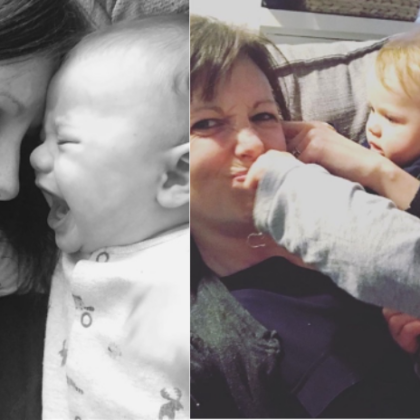Transform traumatic bereavement with cognitive therapy for PTSD
The June BABCP Article of the Month is from the Cognitive Behaviour Therapist (tCBT) and is entitled “Moving forward with the loss of a loved one: Treating PTSD following traumatic bereavement with cognitive therapy” by Jennifer Wild, Michael Duffy and Anke Ehlers.
Grief is unforgiving. People feel uncomfortable around it and therapists are often unsure of when to treat it. Add to the picture, symptoms of post-traumatic stress, and many feel stuck.
But there is a way to approach grief and PTSD, which shifts our thinking and is uplifting. I wrote the clinical practice paper with my colleagues to offer a step-by-step guide on how to apply cognitive therapy for PTSD (CT-PTSD) to traumatic bereavement.
Rather than focusing on saying good-bye, letting go and moving on, the approach suggests something kinder, which first appeared in the literature in the 1980s. It is the concept of moving forward with loss rather than getting over loss.
When CT-PTSD, a first-line treatment for the disorder, is applied to traumatic bereavement, a core aim is to help the patient to shift their focus from loss to what has not been lost, from a focus on their loved one being gone to considering how they may take their loved one forward in an abstract, meaningful way.
We call this concept intangible continuity and we introduce it for the first time in our paper. It is about moving forward with the meaning of the loved one, which the patient can access at any time through imagery, a personal value or quality, behaviour, or activity.
Perhaps a client lost their wife to cancer many years ago. In exploring what his wife means to him, the client may reveal that she kept him calm, balanced, was a source of strength and smiles. When asked what might capture calm, balanced strength and smiles today, he may say an oak tree or perhaps a ray of sunshine smiling on a field. The image is updating information and is one way the client may connect to the meaning of his wife. The therapist will encourage the client to bring to mind the image of an oak tree or sunshine smiling on a field when he has an intrusive memory which triggers feelings of loss. They will link this updating information to the relevant worst moment in the trauma memory so it will never end with ‘she is not here anymore’ but with how he is taking her forward.
Our paper runs through how to target the processes that maintain PTSD, outlined in the Ehlers and Clark cognitive model, and how to apply treatment strategies to bereavement trauma. We address complexities such as suicide trauma, pregnancy loss, loss of a conflicted relationship, and loss of life caused by the patient.
What I love most about this treatment is how it transforms gut-wrenching loss into connection. It is no longer about letting go or saying good-bye. It is about acknowledging that the patient can take their loved one forward in an abstract and meaningful way, creating a sense of continuity today with what has been lost in the past.
By conceptualising loss like this, the treatment frees patients from the fear and despair associated with loss trauma, rooting them in what matters most – the meaning they give their lives and the relationships in them.
Author Bio:

Professor Jennifer Wild specialises in developing evidence-based interventions to prevent PTSD in first responders and military members. She is linked to the University of Oxford and Phoenix Australia, University of Melbourne. Author of Be Extraordinary: 7 Key Skills to Transform Your Life from Ordinary to Extraordinary, she applies science to understanding and preventing mental ill health.
From Richard Thwaites, Editor-in-Chief of tCBT: Why I chose this article
This fantastic paper by Wild and Duffy builds on their 2017 paper in tCBT (A cognitive approach to persistent complex bereavement disorder) and provides a rich and detailed account of how to treat PTSD associated with traumatic bereavement. I am sure it will be received with gratitude by the CBT community and read alongside their forthcoming paper in Behavioural and Cognitive Psychotherapy on living with loss.






